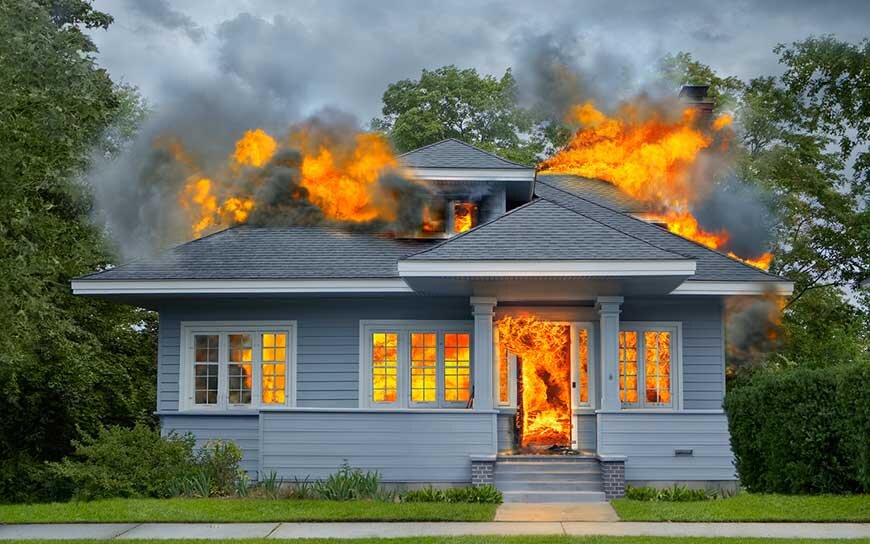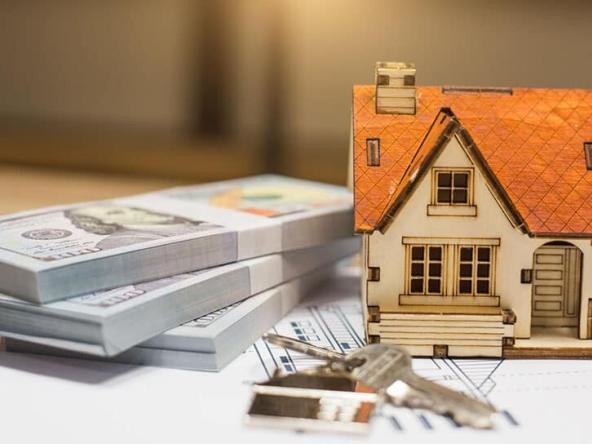A fire can destroy your house in a matter of minutes so you need to take every precaution, especially if you live in an area that is prone to wildfires. Here is what you need to do to keep your home and your loved ones safe.
Create a Barrier Around Your House
If there are wildfires in your region every year or so, this is a no-brainer, but keep in mind that fires can also spread from your neighbor’s property.
- Establish a security barrier around your house using paved roads and driveways as a break line against a raging fire. You can also create a green barrier of fire-resistant plants and shrubs with high moisture content and very little resin.
- The best fire-retardant plants are California lilac and fuchsia, French lavender, and ornamental strawberry.
- The fire barrier should be placed 100 feet from your house.
- Keep in mind that fire tends to climb uphill very fast so pay special attention to such areas.
- Regularly clean dead and dry plants from your lawn or backyard. According to FEMA recommendations, you should leave a 30 feet clear space between any sort of plants and the walls of your house.
Build with Fire-resistant Materials
In some regions, wood is still the preferred building material, although it is easily flammable. The best fire-retardant materials to use are concrete panels with a foam lawyer in the middle.
The same goes for the roof and sidings, where it is recommended to use concrete, bricks, stucco, tiles or metal. Wood is not your best choice, but at least make sure it is treated with fireproofing paint.
Don’t forget about the windows as this is an often-overlooked way for a fire to sneak into your house. Use metallic frames instead of wood and install double-pane windows for extra safety. A single glass window can shatter after just 1-3 minutes of exposure to intense heat.
Wood decks are also a liability. Try to build yours with concrete, stone, bricks, or ceramic tiles.
Clear Your Gutters Regularly
Even if your house is built with fire-resistant materials, make sure to keep your gutters clean. Fallen leaves and wind-blown debris tend to accumulate on your roof and find their way down the gutters. These can easily catch fire if embers traveling through the air from a wildfire land on your roof.
Check Overhead Power Lines
If there are power lines close to your house check to see if they could not be damaged by limbs falling from an old tree. Even if the tree seems strong and healthy to you, always trim the branches that hang over the power lines. You never know what can happen during a storm.
Apply Fire-retardant Chemicals
If you’re particularly worried about wildfires, look for a company providing fire-retardant treatment for your property using eco-friendly chemicals. These will be applied to the most fire-prone elements on your property to create a barrier against fire or at least to trigger a chemical reaction to slow down the flames.
Check Your Electrical System
Many house fires are caused by a faulty electrical system.
Regularly check power cords, plugs, and outlets to see if they’re in good condition.
Don’t run an electric cord under a rug and be very careful with extension cords.
Don’t overload an electric outlet with too many appliances used at the same time.
If you experience frequently blown fuses, that’s a sign there’s something wrong with your electrical system so you should call an electrician.
Replace faulty appliances.
Install a Fire Alarm System
A fire alarm in your kitchen is a must, but it is not nearly enough. To keep your family safe you should have a fire alarm in every bedroom, particularly in your children’s rooms, and on every floor. The fire alarms should be installed on the ceiling as that is where the smoke is going to rise.
Check every fire alarm in the house twice a year to make sure they’re working properly. Replace batteries as needed. According to experts, a good fire alarm system cuts by half the risks of your family dying in a fire or suffocated by smoke.
As an extra precaution, keep a fire ladder made of aluminum in the adults’ bedrooms so you can make it out if the stairs are engulfed in flames.
Beware of Flammable Materials
De-cluttering your home is a good way to minimize fire hazards in your home. Pay special attention to flammable items, such as piles of old magazines or boxes filled with unused clothes. Regularly clear out such things from the basement or the garage.
Make Sure Firetrucks Can Reach Your House
Seems pretty basic, but many people never think about this. If your property is a bit secluded, check to see if a firetruck can pass through the gates to your property and if the driveway is solid enough for such weight. During wildfire season, better leave the gates to your property open so the firemen can reach the house in case of emergency.






